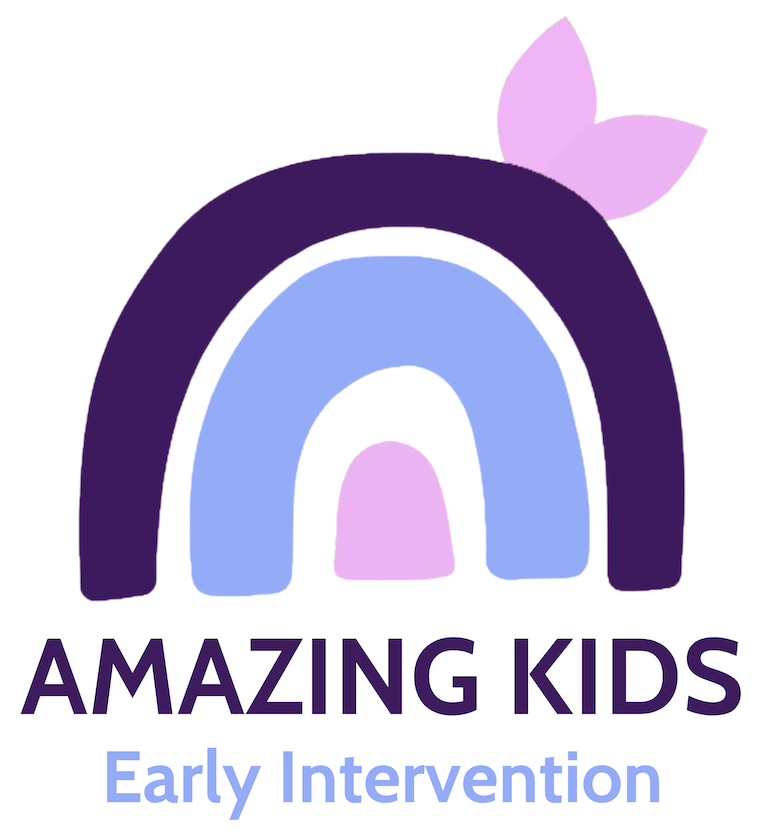Play is a fundamental aspect of childhood, serving as a cornerstone for learning, development, and socialisation. For children with Autism Spectrum Disorder (ASD), engaging in meaningful play can be especially challenging due to various factors such as difficulties with communication, social skills, and imaginative thinking. However, with targeted support and evidence-based early intervention, young autistic children can develop the necessary play skills to benefit from the countless learning and growth opportunities it offers.
In this informative blog post, we will discuss the significance of play for young autistic children, delve into how our highly qualified therapists at Amazing Kids utilise ESDM principles to enhance play skills, and share useful tips for parents to stimulate play-based learning at home. By fostering a strong foundation in play, we can empower these amazing kids to effectively navigate their learning and development journey, leading to a more satisfying, enriched, and connected life.
The Importance of Play Skills for Autistic Children
Developing robust play skills is crucial for autistic children, as it has numerous positive implications for their lives:
1. Learning Opportunities: Play facilitates natural learning encounters, enabling children to explore diverse concepts, problem-solving strategies, and areas of interest.
2. Socialisation: Successful play interactions promote social skill development, paving the way for forming relationships with peers, family, and the community.
3. Emotional Well-Being: Participating in enjoyable and challenging play experiences fosters emotional regulation, resilience, and self-esteem.
4. Creativity and Imagination: Play provides a canvas for creativity and imagination, allowing children to express themselves freely and build narrative thinking skills.
ESDM Techniques for Developing Play Skills
The Early Start Denver Model (ESDM) is a research-supported early intervention approach specifically tailored to the unique developmental needs of young autistic children. Our skilled therapists at Amazing Kids harness ESDM techniques to promote play skills in this population:
1. Individualised Assessment: We conduct a comprehensive evaluation of each child’s strengths, interests and existing play abilities to guide our intervention planning.
2. Relationship-Building: By creating positive relationships through shared activities, routines, and play experiences, we establish an environment that is conducive to play skill development.
3. Naturalistic Teaching Strategies: Integrating play goals into daily activities and routines allows for relevant learning opportunities in a familiar context.
4. Parent Coaching: We empower parents with the knowledge and resources they need to support their child’s play skills and learning at home.
Play Skill Development at Amazing Kids
At Amazing Kids, our dedicated therapists concentrate on nurturing the play capabilities of autistic children using the ESDM approach. Here’s what you can expect when working with our team:
1. Comprehensive Assessment: We start by assessing each child’s existing play skills, providing invaluable insight for goal-setting and intervention planning.
2. Individualised Intervention Plans: Our therapists design tailored interventions that target play goals, focusing on the child’s strengths and interests to maximise engagement.
3. Collaborative Teamwork: By partnering with families and other professionals, we ensure that the child consistently receives well-rounded support for play skill development.
4. Monitoring Progress: Through ongoing assessment and tracking, we refine our interventions to provide responsive and effective support for the child’s needs.
Tips for Parents to Encourage Play-Based Learning at Home
Parents play a vital role in fostering their child’s play skills and creating opportunities for play-based learning. Here are some valuable tips for supporting play at home:
1. Provide a Conducive Environment: Create an inviting and safe space for play, offering a variety of toys, materials, and opportunities for exploration.
2. Engage in Joint Play Activities: Actively participate in play with your child, modelling appropriate play behaviours and introducing them to new play experiences.
3. Foster Creativity and Imagination: Encourage your child to express themselves through imaginative play, stories, and art activities.
4. Offer Choices and Follow Their Lead: Allow your child to select play activities and materials based on their interests, providing guidance when needed.
Empowering Autistic Children Through Play Skills and ESDM Early Intervention
By investing in play skill development for young children with autism through ESDM early intervention, Amazing Kids is committed to unlocking their potential for learning, socialisation, and emotional growth. Empower these exceptional children to lead more enriched, connected, and satisfying lives, helping them to thrive both in the present and long into the future.
As a reliable ESDM provider in Melbourne, Amazing Kids recognises the essential role of play in the developmental journey of children with ASD and is committed to empowering them in this area through ESDM. Our individualised and evidence-based approach, combined with strong parental involvement, cultivates a supportive environment for the development of key play skills. Contact us to learn more about our approach and how we can help your child reach their full potential!
